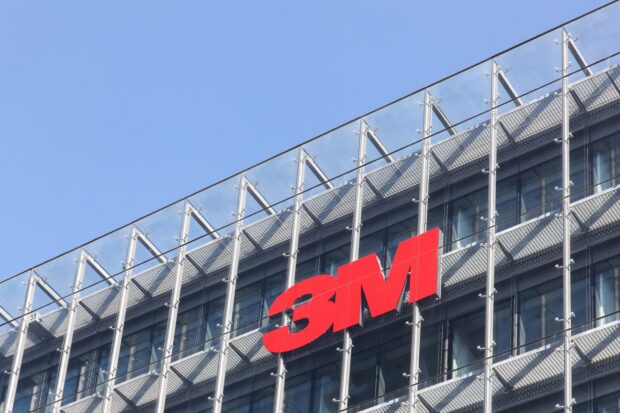A group of 22 states and U.S. territories on Wednesday moved to block a proposed $10.3 billion settlement that would resolve claims against 3M Co over water pollution tied to “forever chemicals,” claiming the deal fails to adequately hold the company accountable.
The group, led by California and including Texas, New York and the District of Columbia, filed a motion opposing approval of the settlement in a South Carolina federal court, where thousands of lawsuits against 3M and other companies over per- and polyfluoroalkyl substances, or PFAS, are being fought.
The proposed deal would provide funds over a 13-year period to cities, towns and other public water systems to test and treat contamination of PFAS. But the states said it isn’t enough to account for the damage caused by the chemicals, which are used in a wide range of products from firefighting foam to non-stick cookware to cosmetics and have been linked to cancers, hormonal dysfunction and environmental damage.
A 3M spokesperson said in a statement that the deal provides funding for remediation and testing without the need for future litigation on the matter, and it isn’t unusual for there to be objections to significant settlements. The spokesperson said the company would continue to “work cooperatively” to address questions about the deal.
Scott Summy, a lead attorney who helped negotiate the settlement on behalf of U.S. water systems, said initial oppositions to large settlements are common and they will work to address issues raised by the states.
The states said the deal, announced June 22, would require public water systems across the United States to decide whether to opt into the settlement before knowing how much they would receive, and in some cases before they are aware of their contamination levels and the costs associated with remediation.
They also said the deal could shift liability for future health concerns caused by PFAS from 3M onto the water systems themselves. That means the chemical maker could potentially seek compensation from the water systems in future litigation over things like PFAS-related cancer clusters, the states said.
“While I appreciate the effort that went into it, the proposed settlement in its current form does not adequately account for the pernicious damage that 3M has done in so many of our communities,” California Attorney General Rob Bonta said in a statement.
The settlement must be approved by U.S. District Judge Richard Gergel, who is overseeing the cases in South Carolina.
3M, which is facing thousands of lawsuits over PFAS contamination, did not admit liability in the proposed settlement. It said in June that the money will help support remediation at public water systems that detect PFAS “at any level.”
The deal did not cover claims related to personal injury or property damage from PFAS contamination.
Three New York State cities with claims related to cleaning up PFAS at superfund sites in their jurisdiction also moved to block the settlement earlier this month. They claimed the water system settlement would reduce the amount of 3M money available to clean up those types of sites across the country, which the U.S. Chamber of Commerce estimates could cost more than $17 billion.
The U.S. Environmental Protection Agency has called PFAS an “urgent public health and environmental issue.” The substances are dubbed “forever chemicals” because they do not easily break down in the human body or environment.
The EPA has taken several steps in recent years to tighten regulations for the chemicals, and in March announced the first-ever national drinking water standards for six of the chemicals.
3M in December set a 2025 deadline to stop producing PFAS.





















 Earnings Wrap: With AI-First Mindset, ‘Sky Is the Limit’ at The Hartford
Earnings Wrap: With AI-First Mindset, ‘Sky Is the Limit’ at The Hartford  Allianz Built an AI Agent to Train Claims Professionals in Virtual Reality
Allianz Built an AI Agent to Train Claims Professionals in Virtual Reality  20,000 AI Users at Travelers Prep for Innovation 2.0; Claims Call Centers Cut
20,000 AI Users at Travelers Prep for Innovation 2.0; Claims Call Centers Cut  Beazley Agrees to Zurich’s Sweetened £8 Billion Takeover Bid
Beazley Agrees to Zurich’s Sweetened £8 Billion Takeover Bid 